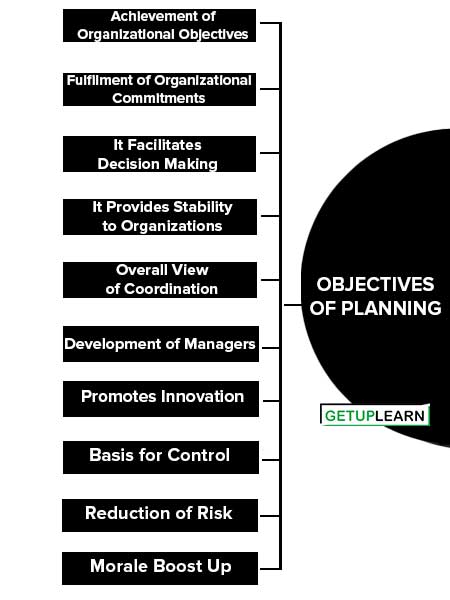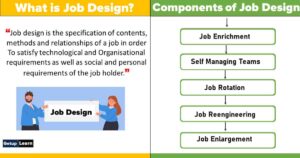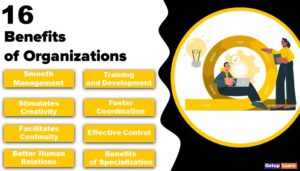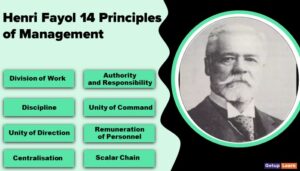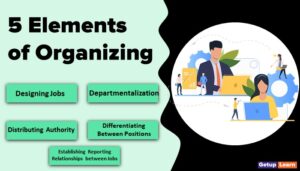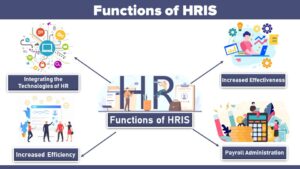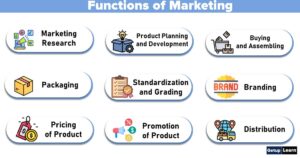Planning is important because it enables the organization to survive and grow in the dynamic, changing environment. Planning is the basis of the distinction between successful and unsuccessful organizations. In a dynamic environment, planning helps in scanning environmental changes and forecasting the future.
Table of Contents
-
1 Objectives of Planning
- 1.1 Achievement of Organizational Objectives
- 1.2 Fulfilment of Organizational Commitments
- 1.3 It Facilitates Decision Making
- 1.4 It Provides Stability to Organizations
- 1.5 Overall View of Coordination
- 1.6 Optimum Utilization of Resources/efficiency of Operations
- 1.7 Development of Managers
- 1.8 Promotes Innovation
- 1.9 Basis for Control
- 1.10 Reduction of Risk
- 1.11 Morale Boost Up
- 1.12 Facilitates Delegation
- 2 FAQ Related to Objectives of Planning
Objectives of Planning
These are some important objectives of planning briefly explained below:
- Achievement of Organizational Objectives
- Fulfilment of Organizational Commitments
- It Facilitates Decision Making
- It Provides Stability to Organizations
- Overall View of Coordination
- Optimum Utilization of Resources/efficiency of Operations
- Development of Managers
- Promotes Innovation
- Basis for Control
- Reduction of Risk
- Morale Boost Up
- Facilitates Delegation
Achievement of Organizational Objectives
Planning helps the organization achieve its objectives. Planning provides the path for the achievement of organizational goals with minimum waste of time, money and energy. It bridges the gap between where we are and where we want to go.
Fulfilment of Organizational Commitments
Organizations have long-term and short-term commitments towards society, depending on their nature. A defence organization, for example, has long-run commitments while a retailer is more interested in short-term goals or responsibilities. These commitments or goals of the organization can be fulfilled through planning.
It Facilitates Decision Making
Decision-making is deciding what to do when managers face a problem-solving situation and adopting the best way out of the available courses/ ways of doing it. It is “the process of choosing a course of action from two or more alternatives.”
Managers have to make decisions like what to produce and how to produce, what are the organizational resources and how can they are effectively allocated over different functional areas, what are their primary goals profit or social responsibility and many more. Planning helps to decide a course of action that will solve the specific problem.
It Provides Stability to Organizations
Organizations that plan their operations are more stable than others. Managers foresee risks and prepare the organizations to face them when they occur. Planning precedes all other managerial functions and coordinates them for providing stability to the organization.
Planning before organizing (what kind of organization structure), planning before staffing (what kind of people), planning before direction (what kind of motivation, leadership and communication system) and planning before control (the controlling techniques to achieve standards of performance) promotes group effort and teamwork to give the right direction to organizational activities.
Overall View of Coordination
Objectives of Planning: The organization is a structure of relationships where authority and responsibility are clearly defined. Planning coordinates the functions performed by individual members and departments and unifies them into a single goal the organizational goal. It unifies inter-departmental activities so that all departments work according to plans.
Optimum Utilization of Resources/efficiency of Operations
Organizations work with limited resources. Planning allocates these resources over different objectives and functional areas (production, personnel, finance and marketing) in the order of priority. This results in the optimum utilization of scarce organizational resources (men, material, money etc.) and their effective conversion into productive outputs.
Development of Managers
Planning involves imagination, thought and creativity by managers. Managers develop their conceptual and analytical skills to plan and coordinate organizational activities with the external environment. This is one important objectives of planning.
Promotes Innovation
Planning involves forecasting. Managers foresee the future, analyze the strengths of their competitors and think of new and innovative ways of promoting their products. Planning promotes new ideas, new products, and new relationships and, thus, promotes innovation and creativity.
Basis for Control
Planning frames standards of performance and control ensure the achievement of standards. Controlling involves the measurement of actual performance, its comparison with standard performance, finding deviations and taking steps to remove the deviations to make better plans for the future. Unless there are plans, there will be no control. Planning is, thus, the basis for control.
Reduction of Risk
Risk is a situation where moderately reliable information is available about the future but it is incomplete. Uncertainty, on the other hand, is a situation where no information is available about the future.
Changes in government policies are a situation of uncertainty while the entry of competitors in the market with better technology represents a situation of risk. Planning helps to reduce risk through forecasting.
Morale Boost Up
If organizational plans succeed and goals are achieved, managers and employees feel satisfied and morally boost up to concentrate on organizational activities. Successful planning, thus, promotes the success of the organization and higher standards in the next planning cycle.
Facilitates Delegation
Well-designed plans enable managers to concentrate on strategic issues and delegate routine/operating activities to lower-level managers. It, thus, facilitates delegation.
What are the objectives of planning?
The following are the objectives of planning:
1. Achievement of Organizational Objectives
2. Fulfilment of Organizational Commitments
3. It Facilitates Decision Making
4. It Provides Stability to Organizations
5. Overall View of Coordination
6. Optimum Utilization of Resources/efficiency of Operations
7. Development of Managers
8. Promotes Innovation
9. Basis for Control
10. Reduction of Risk
11. Morale Boost Up
12. Facilitates Delegation.

